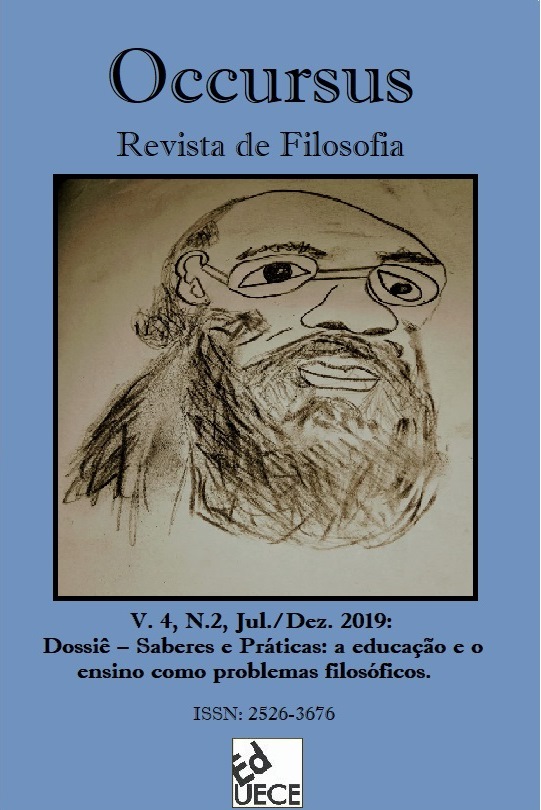Hume and Deleuze: habit as a passive synthesis of time
Keywords:
Hume. Deleuze. Habit. Time. Passive synthesis.Abstract
The purpose of this paper is to expose the Hume's theory of habit from Deleuze's interpretation, which conceives such theory from the perspective of the question of time. At first we try to describe the way the habit produces causality, once the causal relationship is exemplary from the point of view of temporal problematics. In a second moment we deal with the principle of habit as a synthesis of external and different perceptions, a principle that is independent of subjective activity. Habit, as we seek to show, is prior to any subjective activity because its dynamics are entirely passive. In a third moment we show that this synthesis of habit is a synthesis of time, a passive synthesis of time, producing, as Deleuze states, of the living present of the active subjectivity.
References
DELEUZE, Gilles. Diferença e Repetição. Trad. Luiz Orlandi e Roberto Machado. Rio de Janeiro: Graal, 1988.
DELEUZE, Gilles. Empirismo e Subjetividade. Trad. Luiz B. L. Orlandi. São Paulo: Editora 34, 2001.
DELEUZE, Gilles. e GUATTARI, Felix. O que é a Filosofia? Trad. Bento Prado Jr e Alberto Alonso Muñoz. Rio de Janeiro: Editora 34, 1992.
HUME, David. Tratado da Natureza Humana. Trad. Déborah Danowski. 2. ed. rev. e ampliada. São Paulo: Editora UNESP, 2009.
JAMES, William. Essays in radical empiricism. New York: Dover, 2003.
LAPOUJADE, David. “Do Campo Transcendental ao Nomadismo Operário – William James”. Trad. Ana Lúcia de Oliveira. In: Gilles Deleuze: Uma vida Filosófica, Éric Alliez (org). São Paulo: Editora 34, 2000.
Downloads
Published
How to Cite
Issue
Section
License
Copyright (c) 2024 Guilherme Müller Junior

This work is licensed under a Creative Commons Attribution 4.0 International License.




